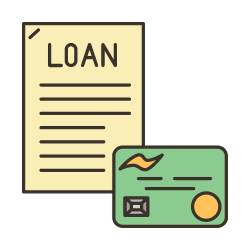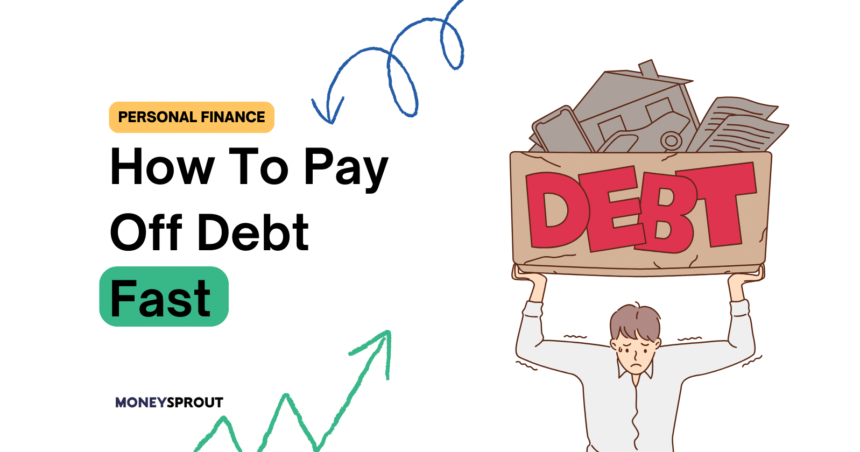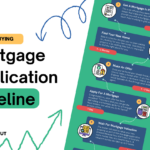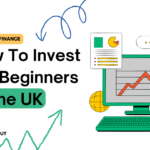Debt levels are at all-time highs in the UK and it isn’t getting any better with the cost of living crisis we are currently experiencing. Even being in small amounts of debt can be a huge burden on your mental health. Here at Moneysprout, we are strong believers that zero consumer debt is the best amount of debt.
Paying off your debt can be hard but it’s also extremely rewarding when you are debt free. In this article, we are going to give you a full guide on how you can pay off debt as fast as possible and become debt-free. Let’s jump in.
Quick Stats
First, let’s take a look at a couple of stats around debt in the UK. It’s important to know that it’s not just you struggling. A lot of people are in the exact same position as you and many have been in worse and came out the other side.
- The average total debt of a UK household is £65,619
- Households have an average of £2,363 in credit card debt
- Total unsecured debt per adult reached an average of £4,047
- The average 18-24-year-old has £207.84 of monthly buy now, pay later debt
Types Of Debt
When it comes to debt, there are two types. Good debt and Bad debt. Good debt offers you long-term financial benefits while bad debt simply hurts your finances. Ideally, you want to pay off all of your bad debts. Good debts are okay to have as long as you can comfortably afford to pay them each month.
Good Debt
Good debt is usually a lower-interest debt that will allow you to increase your wealth in the long term.
The best example of good debt in personal finance is a house. Most people can’t buy a home without taking on debt, so a mortgage is required. However, the asset you are purchasing historically increases in value over time helping you to generate wealth.
Another example of good debt would be debt for student loans which over time will help you earn more money in your career. The boost in career earnings far outweighs the cost of the loan.
Bad Debt

Bad debt is usually a high-interest, unsecured debt that does not provide long-term financial benefits in your life.
The most popular is credit card debt. These are usually high-interest and can get you in serious financial trouble if not managed correctly. In my opinion, most people shouldn’t use credit cards. If you do use a credit card, it should be paid off 100% in full at the end of each month so you never pay any interest. If you can’t afford to pay for something in cash, don’t buy it.
Other bad debts include payday loans, buy now pay later and any debt you take out for discretionary purchases. Avoid taking on debt for clothes and holidays.
First Steps To Paying Off Your Debt
Take Note Of All Your Debts
The first thing to do is take note of all your debts. We want to figure out the total debt we owe and which debts have the highest interest rates. List out each of your debts, including credit cards, loans, car loans, payday loans etc.
When listing them include:
- Debt Name/Account
- Debt Type (Credit Card, Car loan, etc)
- Balance
- Interest rate
- Payment Terms
- Minimum Monthly Payment
Having this information allows us to know the best way to tackle our debts.
Create A Budget

If you don’t already have one, you need to create a budget. This will allow you to see exactly where your money is going on a monthly basis. Here at Money Sprout, we like to keep things simple with the 50/30/20 budgeting method.
This is where you split your expenses into three categories; Needs (50%), Wants (30%) and Savings & Debt Repayment (20%).
When focusing on paying down debt, a minimum of 20% of your post-tax income should go towards debt repayments. If you’re actually serious about getting your debt to zero, most of your wants category should also go to paying it off.
Create your budget and figure out how much money you need to cover your “Needs”. I recommend keeping approximately 10% of your income for wants as this will help make paying off the debt more sustainable. You still have some money each month to buy things you want.
The other 40% should start going towards paying off your debts. We’ll talk about how to know which debts to pay off first soon.
Contact Your Banks/Credit Card Providers
Before we start paying down our cards it’s worth contacting the banks and credit card providers to see if they will offer you a cheaper interest rate. If you are honest and explain your situation to your lender they are often willing to help by offering a lower interest rate, putting your interest on hold, or even offering repayment plans.
If you can secure some lowered interest rates, it’s a great way to save money over the debt repayment process.
Choose A Method To Repay Your Debt
Now it’s time to start paying off each of these debts you have. There are two popular methods for doing this, the Avalanche Method and the Snowball Method. Both have their advantages and disadvantages. Let’s take a look at both and you can decide which method is best for you.
Debt Snowball
The debt snowball is a popular method of paying down your debts, popularized by Dave Ramsey. The basic principle of this method is to pay off your debts in order of smallest to largest regardless of the interest rates. Pay the smallest debt the fastest while paying minimums on all other debt.
The main benefit of this method is the psychological win of paying off a debt in full quickly. The pleasure you get from paying off the smallest debt in full will encourage you to continue paying off your larger debts. The method is also simple to understand and execute. Simply list out your debts and start tackling them from smallest to largest.
While this can be a motivating way to pay down your debts, it isn’t mathematically the best decision. This method is more about gaining momentum and getting into the habit of paying down your debts.
Debt Avalanche
The debt avalanche is mathematically the best way to pay down your debt. This method focuses on tackling your highest-interest debts first excluding your mortgage. During this process, you continue to pay minimum payments on all of your debts while devoting any extra money toward your highest-interest debt.
Once the highest interest rate debt has been paid off, you move on to the next highest interest debt and start devoting any extra income towards it.
By utilizing this method you will pay less interest over time compared to the debt snowball method. The main disadvantage to this method is many people feel like they aren’t making progress. If your highest-interest debt is also your biggest loan it can take some time to pay it down, while never actually closing any accounts during this period.
The method you choose really depends on your personal choice. For me, I would go with the avalanche method as it is the cheapest way to pay off your debt. However, if you struggle with motivation and want to feel like you’re making progress, go with the snowball method.
You should now have a plan in place to start paying off your debt in a methodical way. Stick true to your plan and continue until all of your debts are paid off. Avoid taking on any new debt at all costs during this process.
How To Pay Off Debt Fast – 6 Tips
Now you have a plan in place, let’s look at some steps you can take to pay off your debts as fast as possible.
Cut Expenses
One of the easiest ways to put more towards your debt payments is to cut out a lot of your expenses. Go through your bank statements and see if there are any trends where you are spending too much. For example, many people overspend on eating out and takeaway food. Simply cooking your own meals and bringing a packed lunch to work can save you hundreds of pounds per month.
Are you paying £60 a month for Sky TV? Probably don’t need that when you are in debt.
Do you have subscriptions to 5 different streaming services? Probably don’t need them all.
Signed up for some subscription you don’t recognise anymore? Cancel it!
When you are in debt, the main focus needs to be on getting out of it as soon as possible. To do this you need to be ruthless in cutting out expenses that you don’t actually need.
Consider A Debt Consolidation Loan
Debt consolidation loans allow you to move your existing loans to one provider and then pay off your debts with one single monthly repayment.
This can be a good way to save some money on interest as well as make your debt repayments much simpler as you will have one loan vs many. Some people will find chipping away at one big loan much easier than paying off multiple loans at a time.
Sell Items You Don’t Need
We all have stuff lying around our house that we don’t need or use anymore. Maybe it’s clothes, games consoles, furniture. Whatever it is, if you’re not using it, sell it and put the money towards your debt. If you may be shocked at how much you can make selling some of the stuff you don’t need. This can speed up the debt repayment process a lot.
Replacing Your Car
So many people get into debt buying cars that are way out of their price range. If you have a car with a large amount of debt on your car, selling it and buying an older car in cash can make a massive difference in your monthly cash flow.
If you have positive equity in your car, you may even get money back when selling it, which you can put towards a cheaper car in the sub £5k range.
This completely removes your car debt and frees up a massive amount of cash flow each month.
Work Extra Hours Or Get A Side Hustle
One of the easiest ways to pay your debt down faster is to work more and make more money. If your job allows you to work extra hours or weekends, take advantage of it. It may be a lot of hours but it’s only short term until your debt is paid off. You can often get time and a half or double time during these extra shifts which helps to get you to your goal even faster.
Another way to make some extra cash is to start a side hustle. I would avoid anything that requires you to spend any money upfront. Luckily there are many side hustles you can start for free and start making some side cash. Check out our guide to the best side hustles in the UK.
What To Do If You Can’t Pay Your Debts
If you have more debt than you have income, the above strategies may not work for you. There are other options you can take if you can’t meet your debt payments.
Talk To Creditors
The first thing you can do is ring your creditors (Banks and Credit card companies). Try and work out a payment plan that works for both you and them. Most banks will be willing to work with you if you’re making a genuine attempt to pay as it would cost them more to send your debt to collections.
You can also get a debt management company to do this for you and set up agreed payment plans, otherwise known as a Debt Management Plan.
Breathing Space Scheme
The government has a “Breathing space” scheme that gives you 60 days of breathing space where your creditors can’t contact you, take action to make you pay, or add interest and charges to your debt. If you qualify this could give you enough time to get things moving in the right direction again.
Debt Relief Orders
Debt Relief Orders (DROs) are one way to deal with your debts if you:
- owe less than £30,000
- do not have much spare income – usually less than £75 per month
- do not own your home
If you have a DRO, you:
- stop making payments towards your debts (including interest) for 12 months
- need to follow certain rules (‘restrictions’) during that time
- will not need to pay the debts or follow restrictions after 12 months
Bankruptcy
If you cannot pay your debts and don’t have assets to sell to repay your debts, bankruptcy is an option. You can read more about it here on the governments website.
Should I Save Or Invest While Paying Off Debts?
I’m not opposed to saving 1-2 months of necessary expenses as an emergency fund while paying down your debts. Once this is in place everything else should be going towards your debts.
In most cases, your debt will be at a significantly higher interest rate than any rate you could earn on a savings account or investments.
It’s best to completely pay down your debts before starting to invest.
Extra Help For Those In Debt
If you need extra help with your debt, you can get in contact with Step Change a free debt relief charity that can help you become debt-free.
Final Thoughts
You should now be prepared to start taking on your debt. Generally, at the start you will be motivated and stay strict with your plan. However, as time goes on people start to fall into bad habits again. Be mindful of this and stick to your plan with discipline. The freedom you will have when you are debt-free will be well worth the short-term sacrifice right now.
Read More From Money Sprout:



